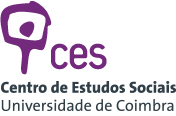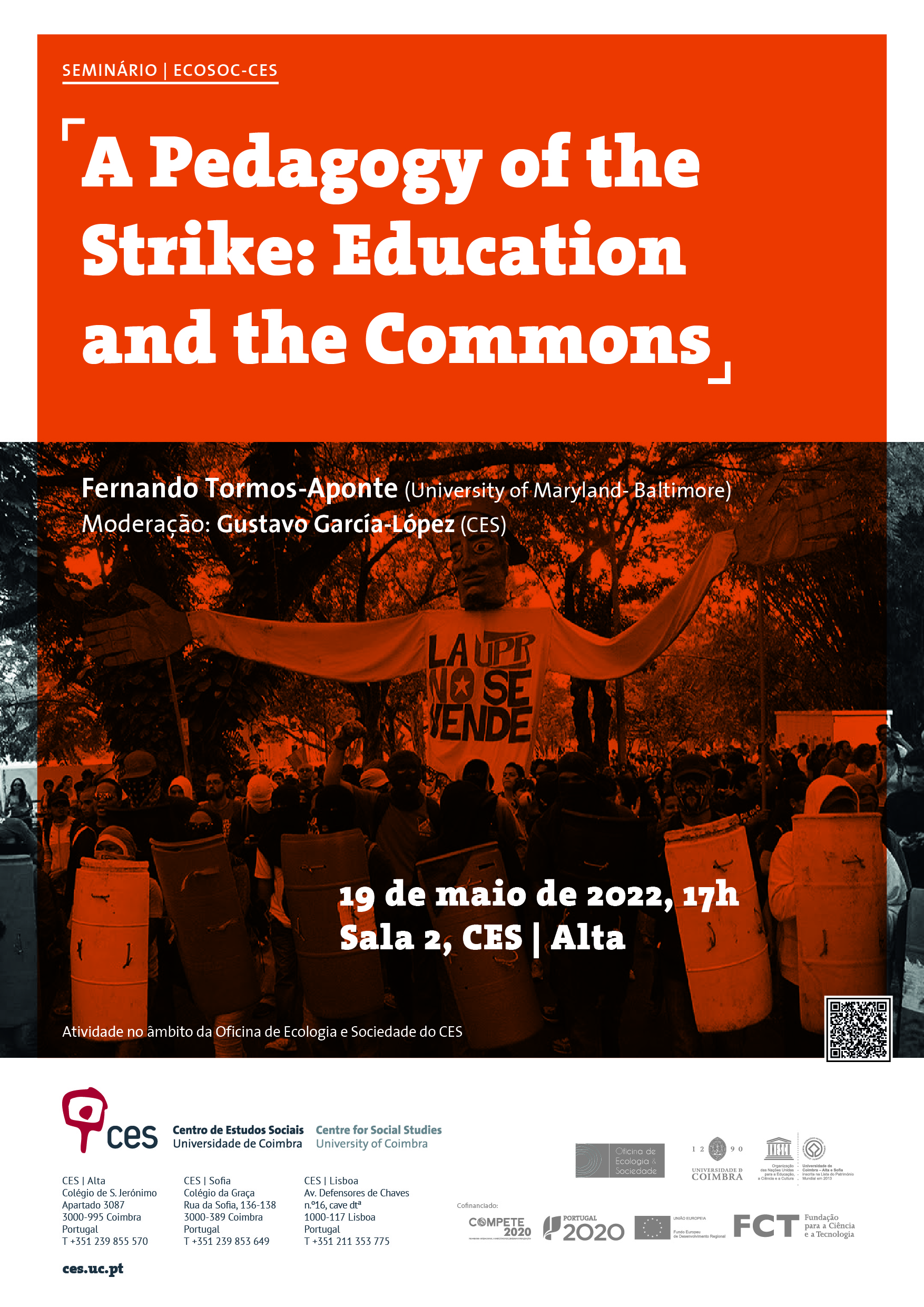ECOSOC - Oficina de Ecologia e Sociedade
Seminário | ECOSOC-CES
A Pedagogy of the Strike: Education and the Commons
Fernando Tormos-Aponte (University of Maryland- Baltimore)
19 de maio de 2022, 17h00
Sala 2, CES | Alta
Moderação: Gustavo García-López (CES)
Apresentação
In his analysis of the 1981 University of Puerto Rico strike, historian Fernando Picó (1982) observed that the student movement’s most enduring outcome was the political formation of students immersed in praxis. The pedagogy of the strike refers to the political learning that takes place in the process of contention. This form of pedagogy challenges the material and epistemological enclosure of an emancipatory educational project. Specifically, the strike challenges the neoliberal and colonial erosion of public higher education through direct action, critical thought, and the practice of self-governance. In doing so, it becomes a commoning act, a set of practices that aspire to alter the social relations that govern the use of spaces and resources. Commoning acts curtail neoliberalism’s redirection and commodification of the mission, structure, and pedagogical orientation of public education. Striking becomes a commoning act when it produces new practices of sharing, knowledge generation, and the development of solidarities that capitalism must constrain to reproduce itself. This pedagogy contends against the interpellative power of neoliberal reasoning, imparts lessons on the value and urgency of defending common spaces and resources, and particularly the university as a site for building alternative and emancipatory futures. This pedagogy prepares movement adherents to build and maintain popular forms of democracy by compelling activists to enact inclusive and democratic processes and structures within their own movement spaces. Activists engage in negotiations that transform the norms of political membership of the commons. Striking to common education seeks to diffuse and expand the realm of political education beyond the confines of institutionalized higher education. Sectors of the Left adopted the scripts developed during the strike and redeployed them subsequent struggles. The pedagogy of the strike compels broader publics to reflect on the state of social relations and engage in efforts to disrupt unequal orders.
Notas biográficas
Fernando Tormos-Aponte is an Assistant Professor of Public Policy and Political Science at the University of Maryland Baltimore County, a Kendall Fellow at the Union of Concerned Scientists, and a Visiting Scholar at Johns Hopkins University. He earned his MA and PhD in Political Science from Purdue University, West Lafayette, and a BA from the Universidad de Puerto Rico—Río Piedras. Dr. Tormos-Aponte specializes in social movements, identity politics, social policy, and transnational politics. His research focuses on how social movements cope with internal divisions and gain political influence. Tormos-Aponte’s work has appeared in Politics, Groups, and Identities, Environmental Policy and Governance, Public Administration Review, Social Politics, Alternautas, PS: Political Science and Politics. His public writing has appeared in The New York Times, The Washington Post, Nueva Sociedad, Jacobin, In These Times, Undisciplined Environments, and Latino Rebels.
Gustavo García-López is an engaged researcher, educator, and apprentice organizer, from the islands of Puerto Rico. He has experience in transdisciplinary social-environmental studies, learned from --mostly public-- universities, but also through the environmental struggles which he's had the honor to accompany. He is currently a Reseacher at CES, as part of the Ecology and Society Workshop (ECOSOC). His work is situated broadly at the intersection of ecology and the political, together with postcolonial/decolonial, Caribbean, Puerto Rican and Latin American studies. Some of the themes he engages with are the commons and commoning, autogestion, mutual aid, environmental justice (and climate/energy/water/land justice), territories, communal weavings, just transitions, liberation, sovereignty, and new ecosocial pacts. He is founding member of the JunteGente collective in Puerto Rico (juntegente.org), the Climate Justice Network (climatejusticenetwork.org) and the Undisciplined Environments blog (undisciplinedenvironments.org).


